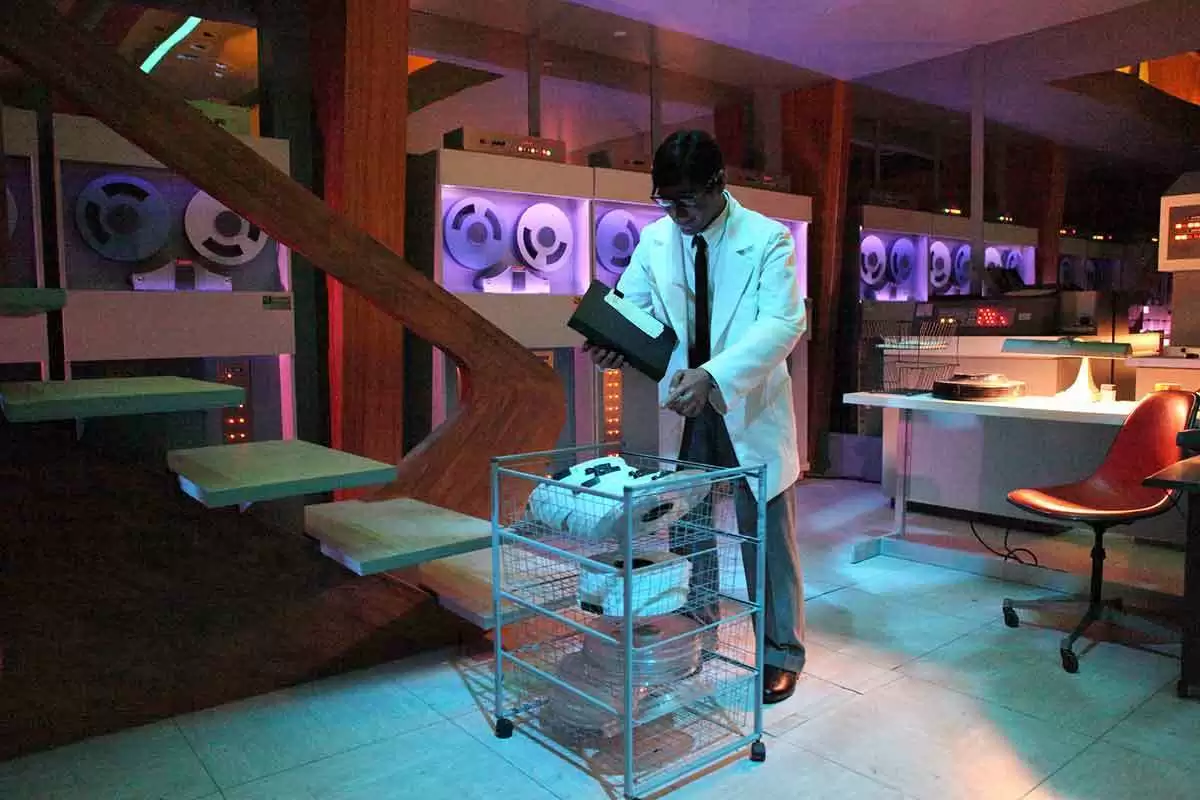
Celiac.com 03/18/2021 - This all started when I was a teenager, some thirty years ago. I was interested in several sports, and had participated to varying degrees in track and wrestling, so when basketball season rolled around my sophomore year I decided to get out there and compete. Not far into the practices, I began to have severe gastrointestinal symptoms. Let’s be clear here—I’m talking painful cramps and diarrhea. Everyone seemed to think that the real problem was that I was a “wuss,” and was afraid to play the game. Well, it was my first time and I wasn’t that athletic, and part of me tended to believe them, so I dropped out of basketball and never played again in school (but have played lots at the health club).
The problem was—the digestive problems did not go away. They have haunted me my entire life. Of course I have gone to numerous doctors and have even been hospitalized more than once (I was hospitalized twice in the last ten days). The hospitalization is always for diarrhea and the subsequent dehydration. Doctors don’t seem to get it. They see diarrhea and think, “No big deal, just rest and clear liquids for a few days”. They can’t seem to understand that this is a chronic condition, nor how that can impact someone. They can’t appreciate how it can hold someone back, and prevent them from thriving.
Celiac.com Sponsor (A12):
I could write much on the failings of the medical system. I’ve been around a while but to date have never personally seen a doctor actually research the situation. The results of their infinite line of tests—one after the other—presumably do lead to conclusions, but they do not seem to have efficacy. I mean that doctors don’t generally don’t give much credence to what the patient is saying, and instead use a generic line of logic that works for any situation where they have no information on what is going on. This canonical approach to testing guarantees everything be considered—but it also guarantees the medical bill will be as high as possible—and the answer will be found as slowly as possible.
In any case, perhaps as early as 1985 I figured out on my own that I was lactose intolerant. Out of all the doctors and the tests I underwent—none discovered this—and finding this out helped me immensely. The painful cramps are basically a thing of the distant past and I am thankful for that. Diarrhea is also a part of the past with the exception of the occasional stomach flu or whatever it was that happened here recently (more on that in a bit).
Something else also became apparent back in 1991. My college and career was in computer science. I was administering computer systems for some thirteen federal field offices. And that year, at the ripe old age of 31, I realized my mental capacity was diminishing. But there was something else too—my vitality was noticeably diminished from the prior year. No mistaking it, because I had been able to take a full load of college classes plus work full time, but could no longer handle it. My intelligence wasn’t diminished, but my sheer capacity for mental work was—I could not do as much mental work as before.
Naturally, at 31 one expects to start feeling the effects of age. It seemed like a natural cresting, and although I was disappointed, it seemed like just one of those facts of life we have to accept. But this was different. The sheer pace of the progression was too much to be a natural decline. The next year I took part-time classes and worked full time. The year after that I took part-time classes and worked part time, and the next year I took part-time classes and had to take a leave of absence from work.
Again, the doctors were consulted. They discounted or discredited my perceptions. Again, if it was anything, it was an emotional disturbance or character weakness on my part. Evidently I just did not want to study or work. Never mind that I had a 4.0 GPA in all my grad studies. Never mind that I was on the fast-track to a GS-12 Computer Scientist position (the highest non-managerial technical position available with the federal government). Never mind that I was one of only eight people in the nation for whom the government was picking up the tab for my studies.
Every single year after that there was a perceptible decline. By 1996 my career was in jeopardy. I resigned from the federal government, feeling “burned out”, and did six months of travel through Latin America all the way down to Panama—just me, my dog, and my little truck. It was great, and I came back refreshed and re-energized. It took a while to find another computer job, but in the summer of 1998 I landed another good one. After six months at it I was again feeling drained, and I began to panic. No help could be found. I soon found an even better job and left the first one after only six months. At the new job I continued to get drained and after perhaps six months had to go to a part-time schedule of about 25-30 hours per week. Here’s what was going on. I would work hard on a project, using very specific types of mental skills. These skills included: mental modeling, state maintenance, memory, technical learning, mathematics, mental technical precision, creativity, and technical or engineering problem solving.
Mental modeling and state maintenance are used to a high degree in software engineering. This is identical to playing a game of blind chess over a period of six months. Blind chess is where you cannot see the chess board. But it is much harder than blind chess if you are playing at the level where I was at. A computer program has much more going on in it than a chess game, much more which you have to keep track of—that is what I mean by “state maintenance”. Projects seemed to average about six months in length, and so you had to maintain the “game” over an extended period of time. You had to be able to pick it up each day from where you left it the day before. Great demands on memory are required.
There was constant technical learning of new languages, new programming environments and objects, learning written specifications and on-the-fly modifications. Clearly algorithms were a large part of the effort which requires one to think in somewhat unnatural ways. Thinking mathematically and with mathematical precision (required for writing software code) is unnatural. We are an organic creature that thinks in an analog fashion, not a digital fashion. We think in terms of changes, and ranges, not in terms of absolutes. We can simulate this digital thinking with our brains, but it is unnatural and expensive. By expensive, I mean it can be done, but it takes a lot of resources. Resources, as far as the human brain is concerned, consists of amino acids, neurotransmitters, other exotic chemicals, and the like.
I had the distinct perception that I was mining these resources at a rate exceeding the rate they were being produced. I don’t know how else to describe the sensation, but it was painful. That’s right, painful. The brain can’t feel pain directly with pain sensors because it does not have any. But it has ways of letting you know when you are doing something that is untenable, and that is what I perceived—a certain kind of harmful mental stress.
At some point I began to experience something I call “Block Heading”. This is where my mental processes literally failed. Their limits were exceeded and the mental process failed in a biochemical way. When this would happen I would find myself staring at the keyboard and no thoughts would come. Let’s make this clear. When you know something well you don’t have to think about it to do it, like driving a car. That is a very complex and technical and dangerous maneuver, yet we do it without a thought. It is the same with computers. Someone can use Internet Explorer without a thought, really, once they know it—right? But with programming this is only true to a point.
An expert can write complex commands in a given language and environment without a thought of how to put the command together. But, for me anyway, it had become impossible to create such commands without thinking about it. Developing anything new requires an internal dialogue in order to organize the sequence of steps that will occur, and to optimize how it shall be done most effectively. Trying to create a program without being able to have an internal dialogue is literally as impossible as flying by flapping my arms—at least for me is was. Take this test: Can you write a letter to someone without having any internal dialogue? Well, writing software is much harder because the writing has to occur precisely in a certain order and there can be zero mistakes in it.
Whenever I was “block heading,” there would be no internal dialogue—only silence. My head was like a block of wood. Even worse, when I had pushed and exceeded limits to the point that block heading occurred, it meant a penalty of about a week for my brain to recover! All I could do was to take time off and rest—for at least a week! My career was untenable. It is virtually impossible to find a part-time software developer position. More consistency is demanded from the industry than my part-time hours with occasional week-long absences could command.
By October of 2001 I was laid off. Nothing personal, all the contractors happened to get laid off. It’s just that I was probably overdue because I could barely contribute anymore. I was thankful to be laid off. I’ve not had a software development job since, although my love for creating software products still remains.
There’s another observation here I can pass on, plus my hypothesis. The main mental processes that were impacted were the ones I used in software development. Any kind of work that uses these processes is out of the question except in limited fashion, such as managerial work which requires an understanding of work but does not require you to actually do much of it. The mental modeling, maintaining state, memory, technical learning, etc., are what I am talking about. Consider this possibility. Suppose you have a pump house that has ten pumps for pumping water at variable rates. All the pumps have the same capacity but some are used at high levels and some at low. Some pumps are running at maximum capacity and almost continuously. Now, you get some bad gasoline with some sort of impurity in it. Months or years go by before you realize it. Which pumps do you suppose are going to be damaged the most? Surely it would be the pumps that were running at high capacity and for long hours.
Perhaps the same is true with the brain—which is a biochemical device. Those processes that were the money makers were the ones with high capacity and high hour utilization. I suspect that if processes related to writing or playing music or what-have-you were in play during this time of progression, that it would be those cognitive aspects most impacted by the disease process. You may even be experiencing the same process at work in your life—although it may be different cognitive processes that are impacted. This may account for some of the variability that makes it so baffling to doctors.
Getting back to the doctors, of course I was desperate for help, and sought out these esteemed men and women of science. Some of them thought that I had mental or emotional problems. They would do their standard blood tests, which of course showed nothing, and since I looked healthy in all respects, could only conclude that I was a hypochondriac with emotional problems who simply did not want to work. The brain, however, is too complex and cognition too subtle to be evaluated by such crude tests! At this time I was making $60 per hour as a contractor. After being laid off of course my quality of life declined. I could only find jobs that paid $6 to $15 per hour, and could only work part-time at them even though they were not jobs that were mentally difficult. For example, I drove a bus for a senior center, and taught people how to use software applications at a computer store.
Even though the serious demands of mental work were removed, my mental situation continued to decline. I began to regularly sprain my ankles—which was extremely painful. After a few months of this I was reduced to wearing ankle braces on both ankles 24/7. My walking was changing, never mind my running. I had been a runner, but no longer could run. Not just for fear of re-injuring my ankles, but because I could not move my legs right. They were becoming like blocks of wood too, stiff and lifeless. The muscles felt like they were continuously contracted and conflicting with each other. It was almost painful, and was certainly uncomfortable. When I walked, I had to throw my legs forward from the hips, something akin to a polio-style walk.
My physical health was declining. I had been an extreme roller-blader, being pulled around town by my wolf-dog. But a crash occurred, and in retrospect I realize now it was because I had lost my balance, becoming stiff and uncoordinated. My neck was injured and the insurance company tortured me by not approving surgery for six months to see if it would magically get better on its own. It did not, and the six months of pain depressed me physically, requiring much rest. After the surgery, there was concern because my oxygen blood levels were too low because of shallow breathing. For a period I had to consciously concentrate on my breathing to make it deeper and keep oxygen levels up. I wisely sold my motorcycle, realizing that I no longer had the necessary balance to be safe on it.
My mental processes were now starting to decline quickly, and my intelligence was also being affected. My memory was particularly impacted, in several specific areas. I went to a renowned neurologist at the University of Colorado Medical Research Center in Denver. I told him whatever it was had affected both my central and peripheral nervous systems. He scoffed at such a thought, and informed me that it was next to impossible. I said, “What about mercury poisoning, doesn’t that affect both?” He conceded that it did, but—for reasons I probably was not smart enough to understand—it was virtually unheard of to have a disease that affects both. He did seem to think I almost had a hereditary disease that causes “hammer toes” and can lead to ankle spraining. By “almost”, I mean that he conceded that I had the symptoms but not to the necessary degree.
Another neurologist found something of great interest. He hooked me up to a device that provided me with repeated electric shocks and he measured how much of the electricity made it to the feet, plus seemed to enjoy watching me jump. Not very much of the electricity made it to the feet. There was acute poly-neuropathy. This means a disease of multiple nerves and at an extreme level. The nerve signals were not making it to the feet. That is why my legs weren’t working right and I was twisting my ankles. He did not check the arms but presumably they were the same because there was no autonomic nerve response reaching the nerve center when he tested me with the little rubber hammers.
At this point I turned to the Internet and did a search of diseases that cause problems to central and peripheral nervous system which have poly-neuropathy as a symptom. It was a short list of four or five and I cannot really remember the list. Lyme disease was on the list, as was celiac disease, and a couple of other well-known diseases like Parkinson’s and multiple sclerosis.
I went to my family doctor and told him these findings. He ordered more tests—three of which were for celiac disease. The results were: one was a high positive; one was borderline negative; one was completely normal. I instantly went on the gluten-free diet on hearing the news and could not be persuaded to go off it a few weeks later to do a gluten challenge and biopsy. So, they did not officially diagnose it as celiac disease, but I stuck to a strict gluten-free diet for two years.
Over the following one and a half years I saw steady improvement. There was an immediate improvement in gastrointestinal health and mental processes. There was a gradual improvement in my legs. There was no improvement in mental capacity, but the progression seemed to have stopped and that itself was a huge improvement. By December of last year I was doing a lot of running—about five miles a week, and this year I am on my way to the best Bolder Boulder 10K race ever. My gluten-free diet was only getting stricter. No MSG, no artificial flavors or colors, and I have also excluded sugar. There have been suggestions that candida albicans (yeast) has a protein in its cell wall that is identical to gluten. The implication is that having yeast in your system is the same as having gluten. The yeast likes sugar—and to help starve it one should not consume sugar.
Recently something happened, and I don’t know its exact cause. I quit running for a break and to enjoy the holidays—and have yet to make it back. My health started to decline again! My physical vigor gradually was being reduced. The polio walk was back. I was getting whacked regularly by what I called “stealth gluten attacks”. A stealth gluten attack is where I must have ingested gluten without knowing it, from cross-contamination, mislabeling, etc.
These attacks were characterized by either or both of the following: gastrointestinal problems or neurological problems. The gastrointestinal problems were generally “soft-serve ice cream” consistency problems but in the last ten days it was acute diarrhea returning to my life. The neurological problems mainly impacted my legs and/or caused reduced mental acuity. Mental acuity has to do with cognition, and it was generally like taking a stupid pill. My memory would greatly diminish so that yesterday eluded me, and only mundane daily activities were possible. Forget high-level activities such as writing, or creating, or planning a project.
By now I was virtually not eating out at all, and virtually not eating any processed foods. My diet was as strict as humanly possible. Plus, I was taking a good mega vitamin with mega doses of B-6 and B-12. So, the acute diarrhea came back and would not go away. My Bolder Boulder was a long and painful walk with zero running. I finished with my worst time ever. I have considered the possibility that there may be something else more serious going on like colon cancer, and have scheduled a colonoscopy.
Here is a hypothesis as to what may be going on. My mother had colon cancer. Celiac disease is very hard on the colon—it puts a lot of added wear and tear on it. Further, something I suspect is that the damage to my nervous systems has made it more “fragile”. By fragile I mean not robust. I suspect that even without gluten, small upsets or stresses to the system could cause it to fail or behave as if gluten were present. Put another way, one’s gut can overcome the effects of the damage to some degree when things are going well, but the gut’s of many celiacs cannot maintain proper operation when any additional stressors are present. For many their guts will always be more fragile and require more TLC.
If there is no cancer, then I am thrown back into the unknown. What could be going on? At any rate, I should tell you that just four days ago I went completely off of my gluten-free diet (which I do not recommend to anyone who has celiac disease). Here’s how my reasoning went. I went through hell the last ten days. Crapping my brains out and going to the emergency room twice, once by ambulance because I was too weak to drive there. Who knows how much money all that is going to cost me? I cannot express how every acute attack felt. I’m a smart guy, and used to make a good living from being smart and working hard. But every attack—maybe this will ring true for you too—every attack was like my life force was rushing out of me. I mean, it was far worse than merely having cramps and enduring the humiliation. For me, it would have felt the same if a pint of blood were rushing out of me—the dizziness, the loss of vitality or life force. It was like a stupid pill injection directly into a vein. Like the total ruin of my life, the stripping from me of my gift—with each attack.
So, my reasoning was something to the effect of, “Damn it, my life is terrible, and I’m still suffering from the celiac-symptoms while on my “perfect” diet. If I’m going to suffer, why am I starving myself of all of those simple pleasures in life?” I went out and had pancakes, some Wendy’s burgers, a no-sugar-added blueberry pie—all the things I gave up two years ago. And guess what? I don’t really feel any worse for it! I do feel it a bit in my legs today, but from what I have been seeing of late, probably would be feeling it in my legs anyway if had not eaten any of that!
So what is the moral here? Well, celiac disease is a complex and only partly-understood disease. I may have it and I may not. I may have celiac disease and something else! It may be the same situation for you too. It is particularly frustrating for me because I consider myself something of a healer—yet efforts for my own self are less than satisfactory. I had such high hopes for my diet—and my life, for that matter—and hopes that the gluten-free diet had fixed my problem, and would reverse much of the damage. It did for a while, but no longer seems to be working, and I don’t know why.
If the colonoscopy comes back for cancer—then that would fit into my model, and I would go back on the diet. But I certainly don’t want to endure the harness of a gluten-free diet if I don’t have to. And, by the way, I have decided to get a biopsy and consider this time period a voluntary gluten challenge.
I hope my story can somehow help you and yours. One thing I have learned through all of this is that we have to take responsibility for our own health—that much is clear. Do the research yourself, and have the discipline and guts to take the actions that your findings indicate need to be taken. Accept what the facts tell you. Remain flexible and willing to modify your position as the facts dictate. Remember, the doctors work for you and you pay them—you control them. You have to be in charge. Good luck and good health to you all. If I may be of assistance to you, informational or otherwise, feel free to contact me.











Recommended Comments
Create an account or sign in to comment
You need to be a member in order to leave a comment
Create an account
Sign up for a new account in our community. It's easy!
Register a new accountSign in
Already have an account? Sign in here.
Sign In Now